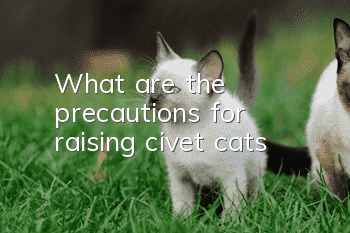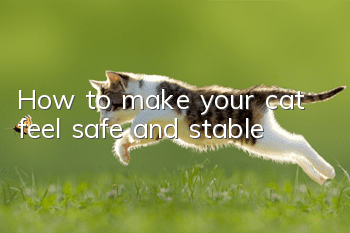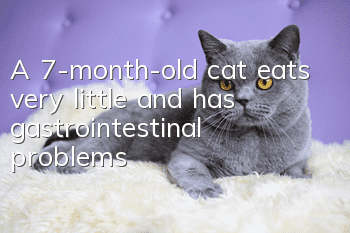What are the precautions for raising civet cats?

The civet cat is the most popular cat in my country. Because of its good physique, strong survival ability, good personality and other advantages, many cat lovers can't put it down. So what should you pay attention to when raising civet cats? After reading, it is recommended to collect~
Medical:
1. Vaccination
Although civet cats are still native cats, they still need to be vaccinated. In the past, people did not have the conditions to vaccinate, but now we have the conditions to vaccinate. This is a health guarantee for civet cats. Moreover, after vaccination, civet cats can prevent many diseases and help extend the life of cats.
It is recommended that civet cats be vaccinated for the first time when they are about 2 months old. In the future, you can decide how often to vaccinate based on whether the cat’s body produces antibodies.
2. Regular deworming
Most people keep civet cats free-range, so they need to pay more attention to deworming. If the civet cat goes out frequently, it is recommended to perform external expelling once every month and internal expelling once every 2 months. If the civet cat is raised indoors, it is recommended to perform external expelling once every 2 months and internal extermination once every 3 months.
3. Regular inspection
Although civet cats have a good physique and are not prone to getting sick, they still need to be taken regularly for physical health. When the civet cat is a kitten, it is recommended to have a comprehensive examination. In the future, it can be done about once every three years. The frequency of physical examination can be adjusted according to the physical condition of the civet cat.
Daily care:
1. Take a bath regularly
Although civet cats often run outside, or some civet cats are kept indoors all year round, and civet cats love to be clean, it is recommended that bathing civet cats 2 to 3 times a year is enough. It is not recommended. Bathing your cat too frequently may cause the cat to have a stress reaction.
2. Regularly release hair balls
Although civet cats do not shed seriously, because they lick their fur frequently, they can also bring hair into the intestines and accumulate it. In severe cases, it can lead to hair balls. Then it is recommended to feed the civet cat some hair removal cream regularly to help the cat expel hair balls. There is an article below about cats volleying hair balls. Interested pet owners can click to learn more.
Feeding Notes:
1. Pay attention to free-range breeding
Although civet cats yearn for freedom and are more suitable for free-range breeding, free-range breeding depends on the conditions. If the pet owner lives in a first- or second-tier city, close to the road, with cars coming and going, then it is not recommended to keep the pet free-range, as this will cause many safety risks. If you live in a village or in a place with free-range breeding conditions, you can choose free-range breeding.
2. Pay attention to feeding
When raising a civet cat, it is best to feed it regularly and quantitatively, and interact with it as often as possible, otherwise it will run away from home due to the neglect of the pet owner. Never feed civet cats leftovers, as this is not good for the cat’s health. For the health of the cat, it is recommended to choose a cat food with a protein content of more than 36%.
- Why cats don’t bury poop
- Why can’t cats eat chocolate?
- What are the characteristics of a cat in heat? How to tell if a cat is in heat?
- Is mosquito repellent harmful to cats?
- What should I do if my cat eats plastic wrapping paper?
- Should I turn on the air conditioner when raising cats in summer?
- How to clean discharge from cat eyes?
- Why does a kitten drool?
- What should I do if a cat runs away when it sees its owner approaching?
- There are black particles on the cat



